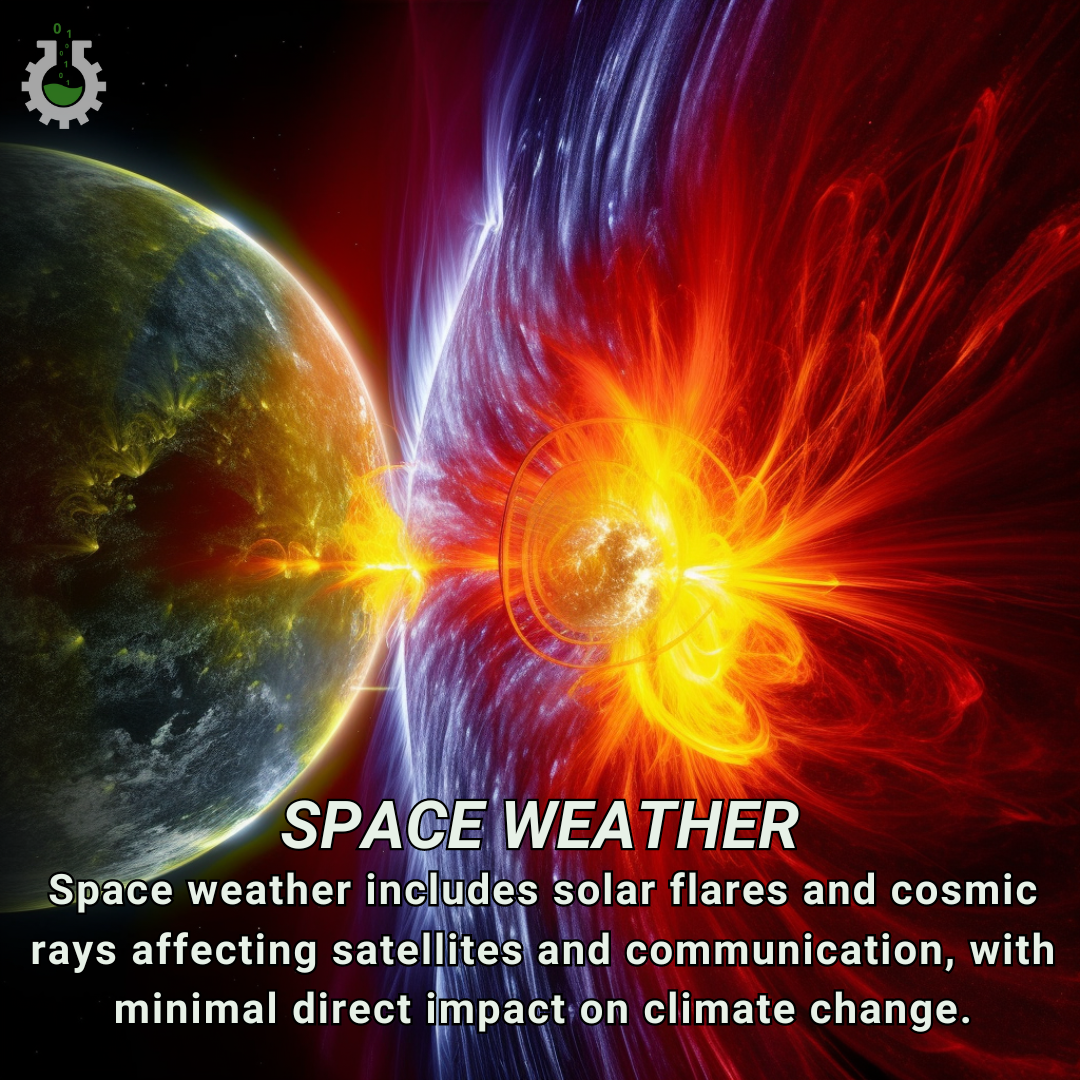June 17, 2024
Climate Change Poster Collection of the Day – Space Weather
Book a Demo
Today’s Climate Change Poster Collection highlights Space Weather, refers to the environmental conditions in space as influenced by the Sun and the solar wind. It encompasses phenomena such as solar flares, geomagnetic storms, and cosmic rays, which can have significant impacts on satellite operations, communication systems, and even power grids on Earth. While the study of space weather has traditionally focused on its immediate technological and operational impacts, a less explored but equally intriguing aspect is its potential interplay with Earth’s changing climate. The relationship between space weather and climate change is a burgeoning field of research that seeks to understand how solar activity and space weather events might influence terrestrial weather patterns and long-term climate trends.
Solar activity, including solar flares and coronal mass ejections (CMEs), releases vast amounts of energy and charged particles into space. When these particles interact with Earth’s magnetosphere, they can induce geomagnetic storms that not only affect satellite and communication systems but also have the potential to influence atmospheric dynamics. For instance, increased solar activity can lead to changes in the distribution of ozone in the stratosphere, which in turn can affect temperature and wind patterns. Additionally, cosmic rays, which are high-energy particles originating from outside our solar system, can influence cloud formation by ionizing atmospheric particles. This ionization process can potentially alter cloud cover and, subsequently, Earth’s radiative balance, thereby impacting global temperatures.
While these interactions are complex and not fully understood, some studies suggest that periods of high solar activity, such as the solar maximum, could be linked to short-term warming trends, whereas periods of low solar activity, like the Maunder Minimum, have been associated with cooler climatic periods. This connection raises intriguing questions about how current and future solar cycles might modulate the effects of anthropogenic climate change. For example, could a prolonged period of low solar activity provide a temporary respite from the rapid warming driven by greenhouse gas emissions, or might increased solar activity exacerbate existing climate trends?
Moreover, space weather’s impact on climate change is not limited to direct atmospheric interactions. The technological disruptions caused by geomagnetic storms can have secondary effects on climate monitoring and mitigation efforts. For instance, satellite-based observations are crucial for tracking climate variables such as sea level rise, ice sheet dynamics, and atmospheric composition. Geomagnetic storms that interfere with satellite operations can thus hinder our ability to gather accurate climate data, potentially delaying critical climate action and policy decisions.
Understanding the nexus between space weather and climate change is essential for developing comprehensive climate models that account for all potential influencing factors. It also underscores the need for enhanced space weather monitoring and forecasting capabilities. By improving our ability to predict space weather events, we can better prepare for their potential impacts on both technological infrastructure and climate systems. This interdisciplinary approach, combining space science and climate science, offers a more holistic view of the challenges we face in a rapidly changing world.
While the direct impacts of space weather on Earth’s climate are still an area of active research, the potential connections highlight the intricate web of factors that influence our planet’s climate system. As we continue to grapple with the realities of climate change, expanding our understanding of how extraterrestrial phenomena like space weather interact with terrestrial climate processes will be crucial. By doing so, we can better anticipate and mitigate the multifaceted impacts of a changing climate, ensuring a more resilient and sustainable future for all.
Discover an inspiring collection of climate change poster.



